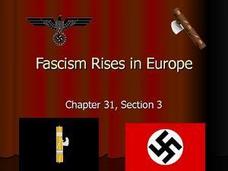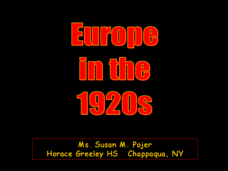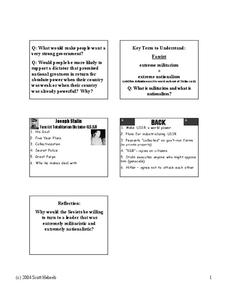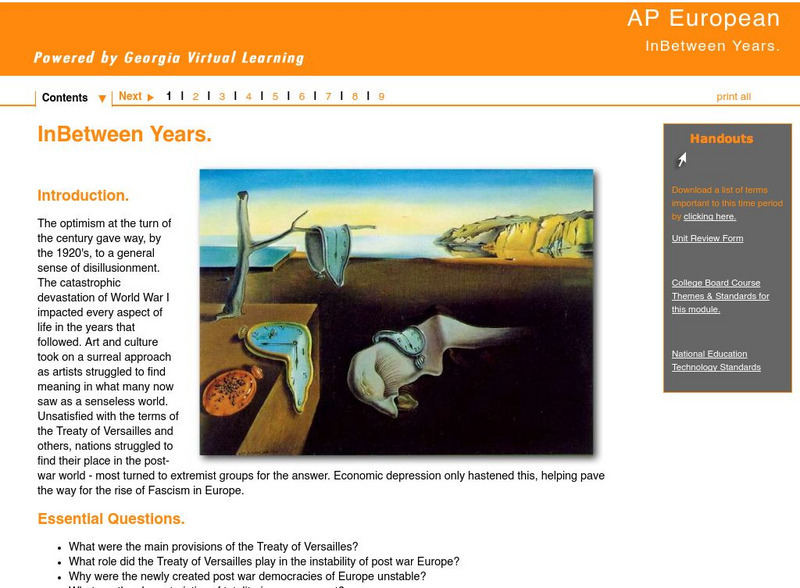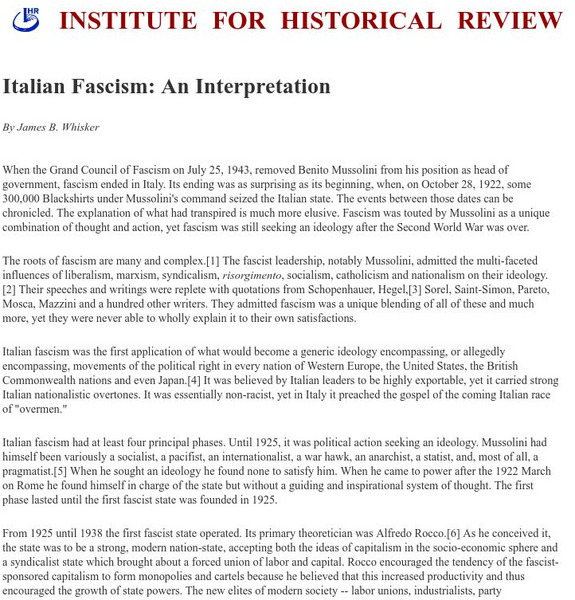Children's Museum of Indianapolis
Anne Frank: Facing Hatred, Daring to Dream
The stories of Anne Frank, Ruby Bridges, and Ryan White illustrate the power of children to make a difference. The three lesson in this must-have resource are designed to inspire young people to make a difference in their world....
Facing History and Ourselves
Protesting Discrimination in Bristol
Using the Bristol Bus Boycott as a case study, class members examine the strategies and levels of power protesters used to effect change. The two-day instructional activity concludes with individuals reflecting on the actions they might...
Facing History and Ourselves
Public Art as a Form of Participation
David Binnington's mural commemorating the 1936 Battle of Cable Street is the focus of a lesson that looks at public art as a form of civic participation. After reading background material about the mural, individuals analyze a segment...
Facing History and Ourselves
Standing Up to Hatred on Cable Street
The final lessons in this section of the Standing Up for Democracy unit ask class members to consider ways they can help create a "more humane, fair, and compassionate environment" in their communities. For context, learners study how...
National WWII Museum
Dr. Seuss and WWII
What famous children's author and illustrator created World War II political cartoons featuring such subjects as fascism, the war effort, discrimination, and the dangers of isolationism? The who in this story is Dr. Seuss, and what...
Curated OER
A Sign of Their Times
Students identify the social climate that created the terms Degenerative Art and Fascist Aesthetic. They also identify how and why certain artists' artwork fell into these categories. Students recognize and discuss the Expressionist...
Curated OER
Holocaust and Resistance
Students complete a unit of lessons that examine the Holocaust from the point of view of those who actively resisted the Nazis. They analyze a timeline, participate in a class debate, explore various websites, and write a letter.
Curated OER
Fascism Rises in Europe: Ch 31
Help your class understand how Hitler achieved power prior to World War II. A strong presentation outlines the post-World War I social and economic context that primed Eastern Europe for a totalitarian dictator. It presents the...
Curated OER
Italian Fascism
By first defining the characteristics and ideology of fascism, this presentation makes it easy for viewers to contextualize the rise of Mussolini in post-WWI Italy. Not only thorough and informative, the pictures and concepts featured in...
Curated OER
The Rise of Fascism
Students explore the variety of events and the people who would shape Europe during the 1920's, describing how this culminated with the Second World War. They create a timeline of ten pre-war events or people with the corresponding date...
Curated OER
Europe in the 1920s
Delicately poised after the dramatic end of WWI and the startling beginning of WWII, this presentation encompassing the positions and roles of Germany, Italy, England, France, and the League of Nations in the 1920's. The first half of...
Curated OER
Benito Mussolini
For this Benito Mussolini study guide worksheet, learners read a brief overview pertaining to the ruler and fascism and then respond to 5 reflection questions.
Curated OER
Joseph Stalin
For this Joseph Stalin study guide worksheet, students read a brief overview pertaining to the ruler and fascism and then respond to a reflection question.
Curated OER
Fascism and General Tojo
In this Fascism and General Tojo study guide activity, students read a brief overview pertaining to topic and then respond to 4 reflection questions.
Curated OER
Communism and Fascism- What are the Similarities and Differences
In this world history worksheet, students complete a table comparing Communism to Fascism. They determine the similarities and differences, and how the two ideals got their beginnings. They compare the two influenced landowners,...
Curated OER
What Fostered the Axis?
Ninth graders present the major cultural, economic and political forces in Germany, Italy & Japan that allowed for the rise and dominance of totalitarian regimes in that country. They discuss how the above listed forces brought the...
Curated OER
Paul Robeson: 20th-Century Renaissance Man, Hero In Any Century
Pupils explore several themes relevant to the life of Paul Robeson and the social, artistic, & political realities of the first half of the 20th century, identify and interview heroes in their communities, and publish profiles on...
Curated OER
Nazism
Tenth graders explore the acts of the Nazi party and discuss how people can commit atrocities against humanity. They discuss the aspects of the Aryan race that the Nazis identified with and how they led them to think they should purify...
Curated OER
The African-American Struggle for Equality in the World War II Era
Students respect and appreciate the challenges people faced during World War II. They develop the different perspectives on race during WWII. Students develop that the nation's actions may not exemplify a nation's stated ideals. Students...
Georgia Department of Education
Ga Virtual Learning: The in Between Years
Comprehensive AP European History learning module on the "Inbetween Years" following WWI, traces the years from the Treaty of Versailles to the rise of Nazi and Fascist regimes in Europe. Includes individual as well as collaborative...
Digital History
Digital History: The Coming of World War Ii
The Treaty of Versailles that ended World War I set the stage for increased world conflict because of the crushing reparations required of Germany. See how Adolf Hitler, over a series of years, used opposition to the terms of the treaty...
Other
Journal of Historic Review: Italian Fascism: An Interpretation
This well-researched essay focuses on the history of fascism in Italy as well as on the ideology.
OpenStax
Open Stax: World War Ii 1941 1945: Origins of War: Europe, Asia and United States
Examines the conditions that fostered the rise of Fascism and Nazism, the events during the lead-up to the outbreak of war, and what Roosevelt did to help affected nations yet still keep the United States neutral.
Internet Encyclopedia of Philosophy
Internet Encyclopedia of Philosophy: Juan Donoso Cortes
An article on the ideas of Juan Donoso Cortes (1809-1853 CE), a political theorist of the 19th century who developed a theory of dictatorship. His ideas influenced another political thinker, Carl Schmitt whose ideas were later used by...









